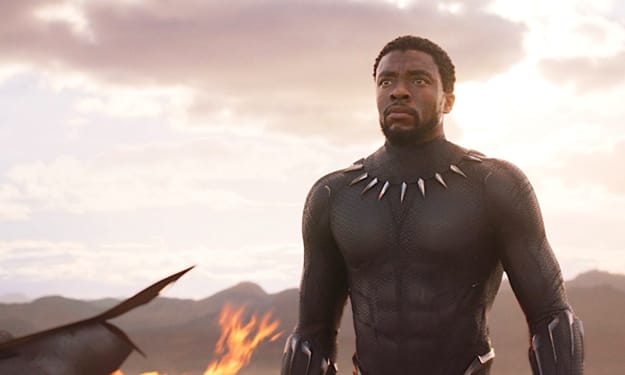Changing the Venue
A new study's results reinforce a growing practice: Movie fans are increasingly voting for films they can stream from home. For them, it’s all about the movie, not the theater.
Netflix debuted its $60 million original movie War Machine in late May. The reviews for the Afghan War-era film starring Brad Pitt were all over the place, from mildly rapturous to downright vicious. But if a recent study is to be believed, television viewers have made a decision about changing their moviegoing habits in a way that makes Netflix and other streaming services war machines themselves. The legacy studios are not happy.
In its May study of streaming video service use, Fluent LLC, a New York-based marketing company, found that more people use streaming video services now than have cable subscriptions. According to the Fluent study, 67 percent of Internet users in the United States watch or have access to streaming services like Netflix, Amazon and Hulu, and only 61 percent have cable service in their homes.
The study was also widely reported June 7 at eMarketer.com.
◊ ◊ ◊
It didn’t all break down along purely generational lines, either. Fluent reported that “while more than three-quarters (77%) of millennials said they have access to a streaming service, so did almost two-thirds (65%) of non-millennials.”
“Netflix was king among both millennials and those ages 35 and older,” Fluent reported on its website. “More than six in 10 millennials (61%) surveyed had access to the subscription video-on-demand (SVOD) service, compared with 45% of non-millennials. Amazon Prime Video was the lone streaming service subscribed to by both age groups at the same rate—16% of respondents. Most of the other streaming platforms examined in the survey had a higher penetration rate among younger internet users.”
And one of the longstanding arguments that movie purists have long brought to bear — that movies are only or best enjoyed in movie theaters — is falling on deaf ears among millennials. “Nearly three in 10 millennials (29%) said they signed on to a service because it gave them the convenience of watching content on any device, while about two in 10 (21%) non-millennials said the same,” Fluent reported.
◊ ◊ ◊
The Fluent study and its findings add weight to an emerging narrative among moviegoers, one that’s been giving fits to the legacy motion picture studios and their like-minded heirs. More and more often, for these film aficionados, it’s not the location of the movie that convincingly shapes or defines the moviegoing experience. The movie’s the thing.
Netflix and Amazon are very much the two most viable test cases for the power of the streaming platform. With a war chest estimated at $6 billion for content this year alone, Netflix is the streaming heavyweight, and it’s been aggressive in its release scheduling in a way the traditional movie studios (and other streamers) can’t match. Two weeks don’t go by without Netflix announcing one or two new original products.
But Amazon has stepped up its A game where it counts. Its spending for content trails Netflix; Amazon will spend about $4.5 billion for new releases this year. But that didn’t stop the company from campaigning heavily in the last Oscar derby. The end result was a streaming triumph. You don't have to win the battle of the budget to win the race.
Manchester by the Sea, Amazon’s wrenching personal story of pain, love and loss, secured a best-director nomination for Kenneth Lonergan, and a best-picture Oscar nomination, the first ever for a streaming service. Add to that mini-coup a real one: Manchester's Casey Affleck won the Oscar for best actor. In one fell swoop, Amazon in particular and streaming services in general acquired the imprimatur of the Oscar, as serious a measure of credibility as the movie business bestows.
It's hard, if not impossible, to stuff a genie like that back in the bottle. Amazon's win this year, and Netflix's 2015 powerful theatrical release — Beasts of No Nation, starring Idris Elba — have put the industry on notice that streaming services are no slouches on competitiveness. The public's connecting the dots too; it's highly likely that Affleck's Oscar win is part of what powered the results of the Fluent study, as more and more people have come to take streamers seriously.
◊ ◊ ◊
Back in January, Lonergan fired a shot at the traditionalists in an interview with The Associated Press. Talking about streaming services, he said, “[i]f they want to get into the movie business, great, because the people who are already in the movie business could use some improvement.”
More broadsides like that are coming. Netflix — previously Oscar nominated for documentaries — is making a scattergun bid for awards-season gold in the features department, and spending huge to do it. In the coming months, and among myriad other projects, the company will release Bright, a sci-fi action-fantasy project (budget: $90 million) starring Will Smith and Joel Edgerton, and directed by David Ayer; and The Irishman, Martin Scorsese's return to crime starring Robert De Niro, Joe Pesci and Al Pacino. The film, said to feature technology that will roll back the years of De Niro's visible age by decades, has a $105 million budget.
Ninety million? $105 million? These are the numbers that try a studio exec's soul. But they're likely to be the future. As streaming upstarts vote on projects with their wallets, and the public votes on projects with its eyeballs, the traditional studios are facing a credible rejoinder to the movie industry's 120+-year-old business model.
There's more than one way to watch a movie in a darkened room.
About the Creator
Michael Eric Ross
Michael Eric Ross writes from Los Angeles on politics, race, pop culture, and other subjects. His writing has also appeared in TheWrap, Medium, PopMatters, The New York Times, Entertainment Weekly, msnbc.com, Salon, and other publications.







Comments
There are no comments for this story
Be the first to respond and start the conversation.